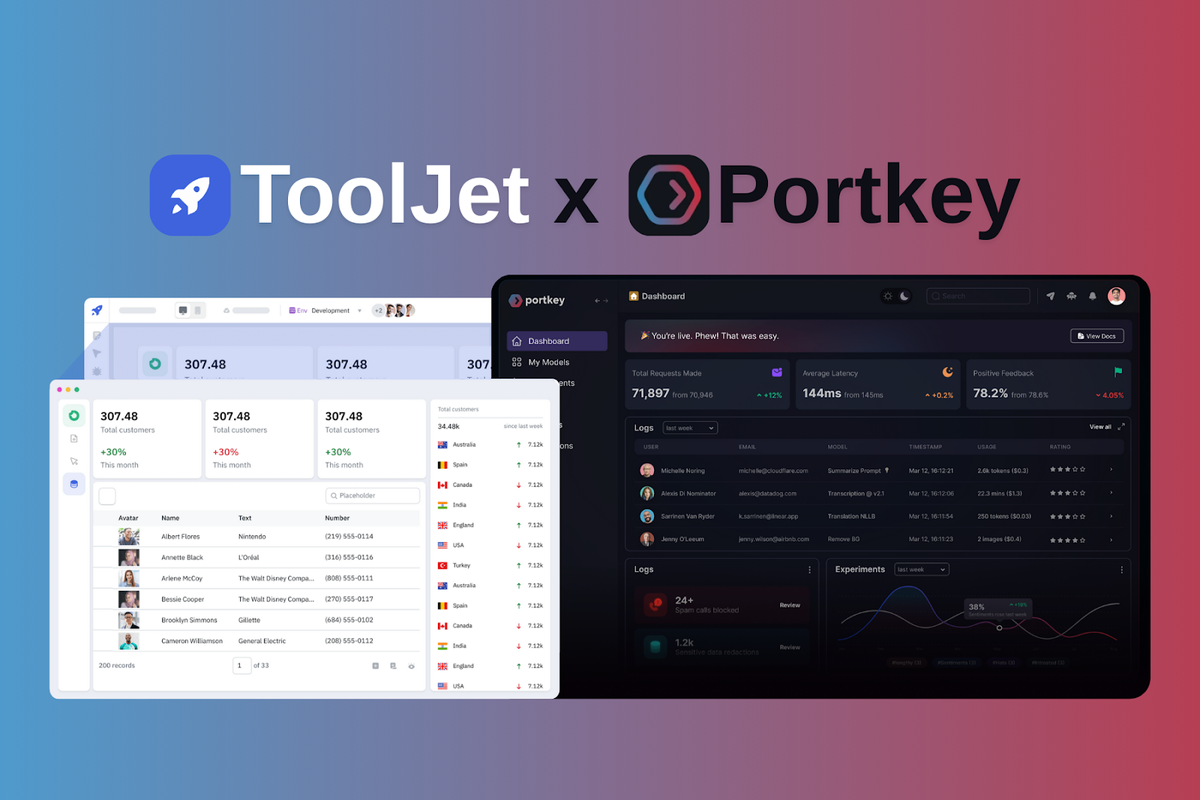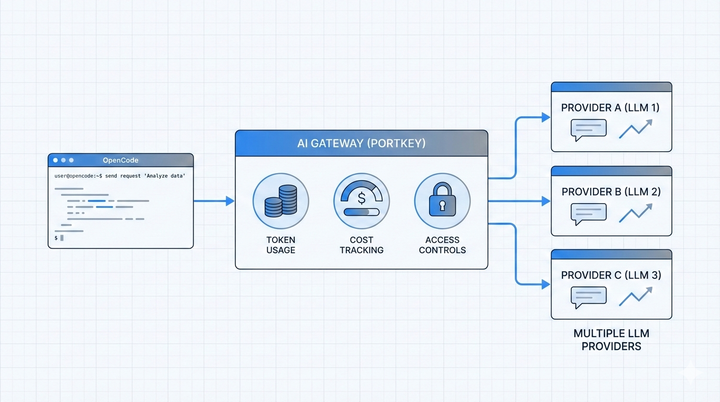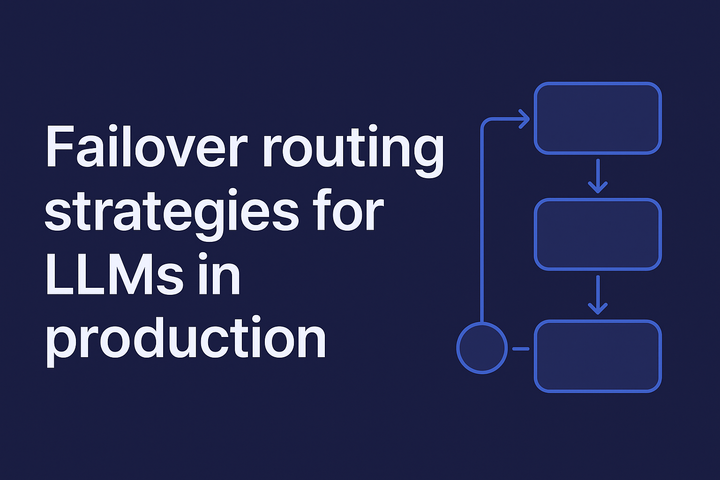Elevate Your ToolJet Experience with Portkey AI
Integrate Portkey with ToolJet to unlock observability, caching, API management, and routing, optimizing app performance, scalability, and reliability.

ToolJet’s low-code platform already empowers developers to build apps efficiently. Now, with the integration of Portkey AI, users can unlock advanced features like observability, interoperability, caching, and intelligent routing. Whether you’re working on internal tools or deploying customer-facing applications, Portkey acts as a powerful add-on that further simplifies workflows while enhancing performance and reliability.
This blog breaks down how the synergy between ToolJet and Portkey equips developers with deeper control, faster response times, and smarter application flows—without introducing unnecessary complexity.
How Portkey Boosts ToolJet’s Capabilities
1. Observability Made Easy
Monitoring your application’s health becomes simple with Portkey’s built-in observability tools. Instead of stitching together third-party monitoring services, Portkey enables real-time tracking of API requests, workflows, and system health directly within your existing ToolJet environment.
Technical Value for ToolJet Users:
- Distributed Tracing: Track API calls and workflows across multiple services in one place.
- Error Reporting: Receive alerts and error logs for debugging without manually inspecting code.
- Performance Insights: Identify slow services or APIs causing bottlenecks and proactively resolve them.
This observability allows developers to focus on building features instead of troubleshooting infrastructure.
2. Seamless Interoperability
ToolJet offers smooth integrations with APIs and data sources, but Portkey adds another layer of interoperability by managing complex workflows between multiple services and systems. You no longer have to build custom bridges or adapters to make different technologies communicate effectively.
Technical Value for ToolJet Users:
- API Gateway Support: Manage multiple APIs through Portkey for centralized control.
- Cross-Platform Communication: Connect legacy systems, microservices, and third-party APIs in real-time.
- Protocol Compatibility: Handle different data formats (e.g., JSON, XML) automatically during cross-service communication.
This ensures every part of your system works harmoniously, regardless of the underlying technology.
3. Intelligent Caching for Faster Performance
Caching ensures applications respond quickly by storing commonly accessed data temporarily. With Portkey, ToolJet users can implement caching effortlessly, reducing latency and improving the user experience, even under high loads.
Technical Value for ToolJet Users:
- API Response Caching: Store frequently requested API responses to minimize redundant calls.
- Edge Caching: Push data closer to users, reducing the time it takes to load content.
- Automatic Cache Invalidation: Ensure data freshness by expiring cached data only when necessary.
This significantly improves app responsiveness without requiring additional backend changes.
4. Smart Routing: Load Balancing, Fallbacks, and Timeouts
Portkey’s routing engine intelligently directs requests across services, ensuring applications remain available and responsive. Whether you're balancing traffic across multiple APIs or setting failovers for downtime scenarios, Portkey ensures smooth request handling.
Technical Value for ToolJet Users:
- Load Balancing: Evenly distribute traffic to prevent any single service from being overwhelmed.
- Fallbacks and Retries: Route requests to backup services when primary ones fail, and retry failed requests automatically.
- Conditional Routing: Route traffic based on custom conditions, such as user location or API response time.
- Timeout Handling: Prevent requests from hanging indefinitely by setting time limits on API responses.
This ensures uninterrupted application availability and smooth user experiences.
5. Built-in Guardrails for Security and Reliability
Security and operational consistency are critical for any production environment. Portkey provides built-in guardrails, which are pre-configured policies that enforce best practices automatically, ensuring workflows are safe and reliable without constant manual oversight.
Technical Value for ToolJet Users:
- Role-Based Access Control (RBAC): Enforce permissions at different levels to prevent unauthorized access.
- Workflow Validation: Ensure workflows follow predefined rules and structures, reducing risks of configuration errors.
- Data Compliance Checks: Verify that data passing through your systems meets regulatory requirements (e.g., GDPR).
These guardrails reduce operational risks and let teams focus on innovation without worrying about accidental misconfigurations.
Maximize ToolJet with Portkey Integration
Enhance your ToolJet apps with Portkey’s AI Gateway, offering seamless access to 200+ AI models with features like automated fallbacks, caching, and load balancing to ensure high availability and low latency, even under heavy loads. Portkey's observability suite provides real-time insights, helping developers monitor metrics, trace requests, and quickly debug issues.
Guardrails add another layer of security by validating inputs and filtering outputs, making workflows safer and compliant with industry standards. Portkey also simplifies authentication through virtual API keys and enables dynamic routing, allowing apps to switch between models and providers based on user needs or environments.
This integration combines ToolJet’s low-code ease with Portkey’s robust performance and control, giving teams the ability to build scalable, high-performing applications with minimal effort.
Getting Started with Portkey and ToolJet
Integrate Portkey into Your ToolJet Workflow
Adding Portkey to your ToolJet environment is quick and straightforward. With just a few simple steps for configuration, you can unlock enhanced capabilities immediately. Visit our docs page to get started.
FAQs
1. What makes Portkey a valuable addition for ToolJet users?
Portkey offers observability, routing, and caching, giving ToolJet users enhanced monitoring, performance boosts, and smoother workflows.
2. Do I need to modify my existing workflows to integrate Portkey?
No. Portkey integrates seamlessly with existing ToolJet apps with minimal code changes.
3. How does Portkey improve ToolJet performance?
Portkey optimizes performance with caching, load balancing, and fallback routing, ensuring fast responses even under heavy traffic.
4. Is Portkey compatible with all ToolJet features?
Yes. Portkey complements ToolJet’s features, extending capabilities like API integration and automation.



